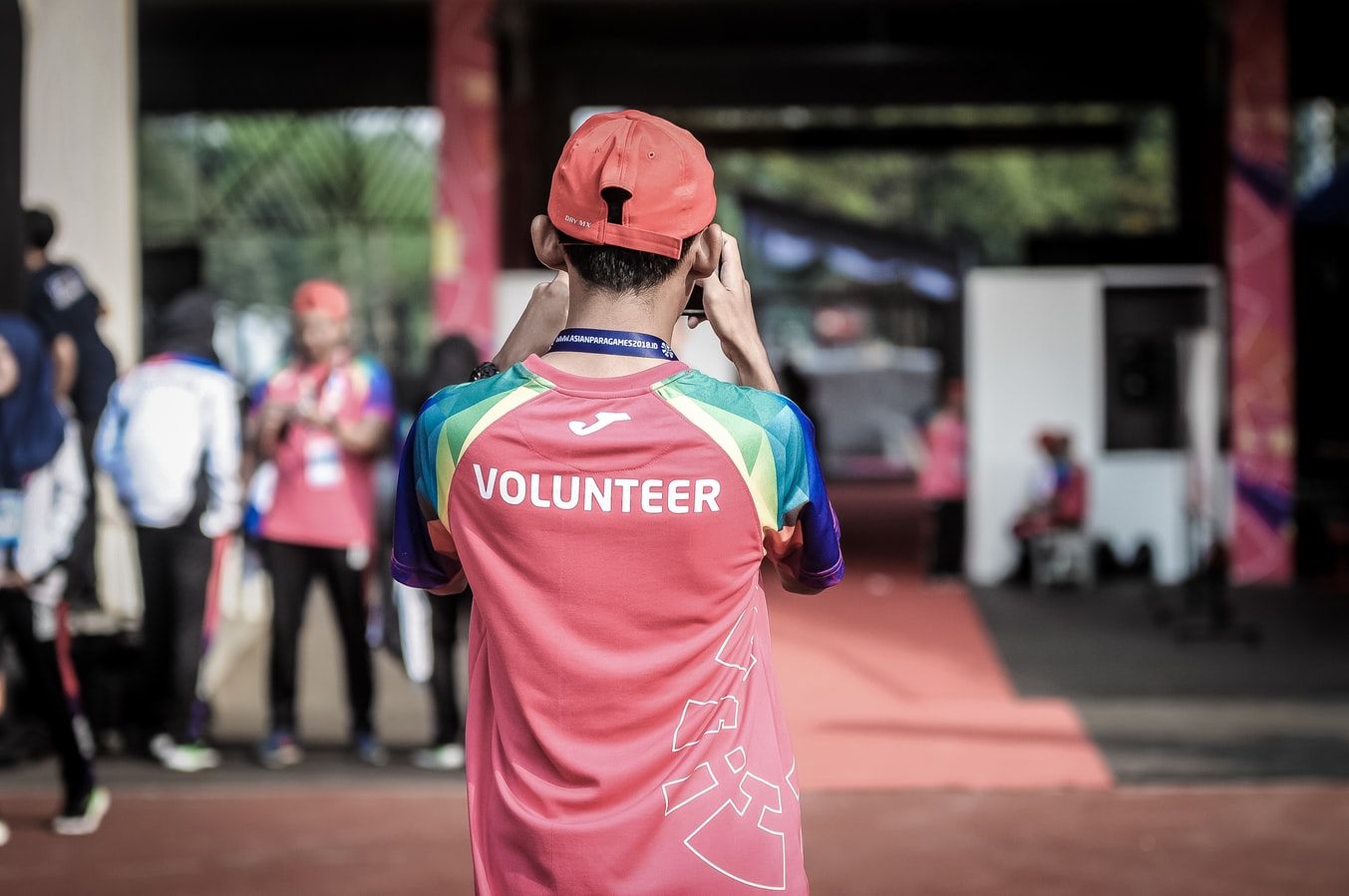This blog post was originally published on Keela.
Volunteers are the best.
They literally give their time for free because they believe in our causes. I have so much respect and gratitude for all the people who give up their weekend and evening leisure time to make the world a better place.
And yet, sometimes volunteers feel the need to move on and stop giving their time to our organizations. Often that's okay and out of our control - life happens. But ultimately we want to keep as many volunteers as possible, for as long as possible, because finding, processing, and training new volunteers is expensive.
There are a few things you can do to make sure volunteers stick around. And volunteer retention shouldn't be a secret! So, I've decided to share the 5 secrets of volunteer retention.
You may find it helpful to pick and choose if some of these tactics feel more relevant than others, but I really believe that a good volunteer program incorporates all 5 taken together.
The volunteer experience - Impact, Appreciation and Community
One key to volunteer retention is crafting a great volunteer experience, and this has essentially 3 components, outlined below.
Show Impact
It's easy for people to lose sight of the impact they're having, especially when they're doing the low-skill tasks we often ask of volunteers. Like, yeah, I get that this organization does great stuff, but what's the point of my role or task? Is this really worth missing out on time with loved ones or time spent doing my favourite hobby?
Sometimes when volunteers don't feel a sense of connection to the true purpose of the organization, or don't feel that their role is contributing to that purpose, they'll lose the motivation to come back.
People show up to start volunteering because they care, but they come back for two reasons: (1) because they found a sense of belonging and community (see below), and (2) because they believe they're having a meaningful impact. And they don't even need to have an individual impact - often, impact can be measured collectively, and this is especially true when it comes to volunteering:
What have we achieved?
So, make the time to show them! What did you win? How much closer are you to your goals? How many people did you help? How much more did you do compared to last year? Put the numbers out there and celebrate, and be sure to make it about your people - their contributions made this possible.
When a person finishes their volunteer shift, make a point to say it: "Wow, this is great! You completed x, which gets us closer to y, because z, and if you hadn't come in today this wouldn't have happened."
Appreciate them
Sometimes it feels obvious - like, do we really need to tell our volunteers that we're grateful for their contributions? Obviously they know that they're doing great work, that's why they show up.
The answer is absolutely we do.
Even when you know you're doing good work, and you're seeing the impact that you're having, you're still a human being. These simple words light people up - they literally trigger a feel-good response that will make anyone feel warm and fuzzy inside: "Thank you. Your contribution is important to us and I'm really grateful you give your time to our cause."
A person is simply more likely to come back again—especially when the work is hard or taxing— when they feel appreciated.
And it's not just about telling them that we care, it's about showing it through our actions. You can check out 10 volunteer appreciation ideas here for inspiration. You don't need to break the bank, just put in some extra effort to demonstrate your gratitude beyond words.
There's also another important way to demonstrate appreciation beyond words: be prepared, on time, and organized. Obviously you don't appreciate them very much if you're late and you haven't thought about what you want them to do! So, make the reverse true and show them that you're ready to embrace their impact.
Make it social
One of the most important reasons that a volunteer keeps coming back is that they found a sense of community. There are a lot of ways you can help build community among your volunteers.
Find ways to create tasks that require teamwork, even when you don't have to. Envelope stuffing? Make it an assembly-line! Sign-in table? Put them in pairs! A bonus to this is that it's just plain safer to have people paired up. If you can make a task into a game, it'll be naturally more social - instead of feeling like work, volunteering will feel like an icebreaker in a great social interaction.
Plan low-effort social activities for the volunteers. Monthly board games or pub nights are always fun. You can even let the volunteers plan and run the event, and wish them well while you take your well-deserved evening or weekend time off.
And of course, never underestimate the power of love. This one gets a laugh or even a raised eye-brow sometimes, but I'm not kidding! Sometimes you get the opportunity to play a little bit of matchmaker for your single volunteers. I'm not saying you need to create a dating game. You can just be a little intentional with your volunteer pairings when relevant and appropriate.
A lot of people are volunteering to meet people - not as their primary motive, but it's a real part of their life, and volunteering is a way to interact, in a non-threatening environment, with like-minded people they otherwise wouldn't meet.
So, why not help them out? You might just earn yourself a place in their forever story!
The volunteer-driven organization - A culture of improvement
Improving a success metric like volunteer retention requires a few organizational habits that will train your culture of improvement. These are honestly the real secrets of success.
Regularly check in
Nothing beats a good old fashioned check-in. It's an often-overlooked little tactic, and yet it's not hard! It all comes down to being intentional in soliciting feedback, and it's the only way you can truly stay in tune with the needs and feelings of your volunteers.
You can read more about the art of the volunteer debrief here. But here's the skinny:
Regularly asking your volunteers how it's going and soliciting their feedback is, like, mission critical. You'll make them feel important (because they are), giving them a chance to help you improve your events and activities. You'll also make them feel heard (because they should be), giving them a chance to air any grievances or concerns before real problems force them to consider leaving.
Really all you need to do is ask three questions (of course, you'll want to ask follow ups): (1) How does it feel to volunteer with us? (2) What's going well? (3) What, if anything, would you change or improve?
Here are a few more questions you could throw in there, time or context permitting: Are you volunteering the right amount? Would you like to volunteer more? Are you doing the right thing? Is there anything else you'd like to be doing? Are you comfortable with the people you volunteer with? If there was a problem, do you know what to do and who to talk to? Is there anything else we could do to improve your volunteering experience? We're thinking about making x change, what do you think?
Track some simple metrics
I know it can be tedious and frustrating to collect data and then try to find a way to make it useful. But trust me, it's your ticket to success, and it's getting easier every year as tech companies like Keela and Purposely, are working hard to adapt to nonprofit needs.
Track this data, look for trends over time, and ask yourselves why its happening:
Demographics of volunteers - there may be clues here for how you can adapt your activities or requirements to align with your volunteers. How long do your volunteers stay for? Why are volunteers leaving? What do happy volunteers say about volunteering? What do unhappy volunteers say? What are the common recommendations for improvement that volunteers give? How much does it cost you to recruit and train a new volunteer (this can inform and justify your retention budget)?
There may be other data points you'll want to track if it's relevant. Things like the weather on a person's first day can have an impact! But don't track so many things that you get lost in a sea of numbers.
In conclusion
Keeping volunteers coming back isn't rocket science. But sometimes it can feel like an uphill struggle. That's okay. Often all it takes is a few tweaks and you'll see a real improvement.
Here it is, in one sentence:
Volunteers come back when they feel appreciated, they see their impact, and they find a sense of belonging and community; and an organization that learns from its people and tracks its data is in a position to improve its volunteer retention.
Alex McGowan is Purposely's Director of Community and Partnerships and an experience volunteer coordinator. He's passionate about helping community organizations realize their potential and do more good in the world. If you're interested in creating a great volunteer experience while saving time managing volunteers, you can reach him at amcgowan@purposely.ca.

